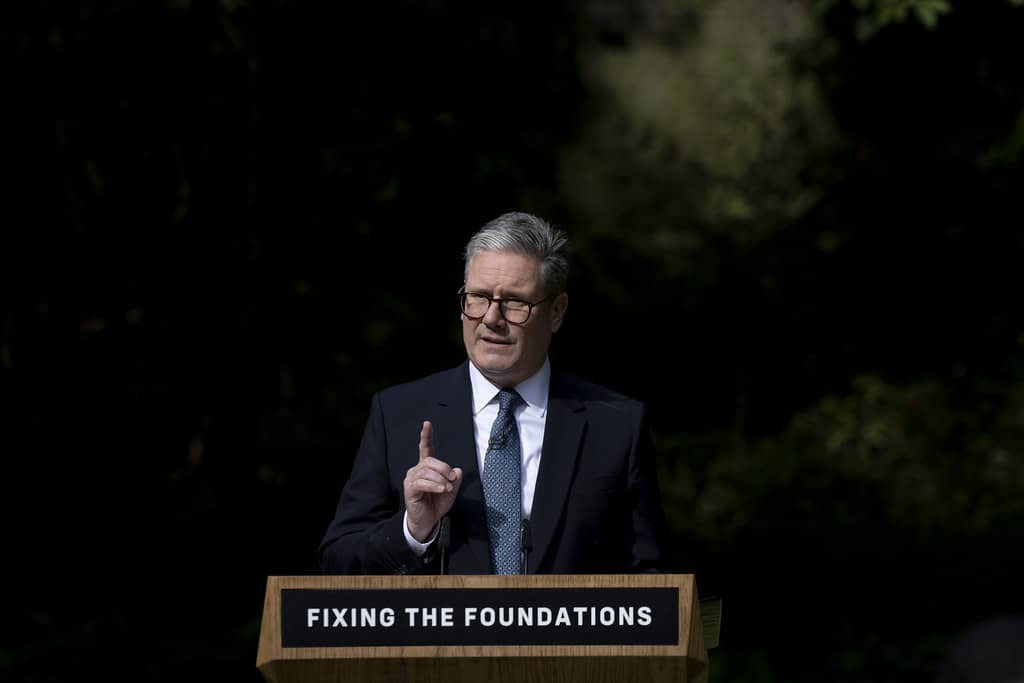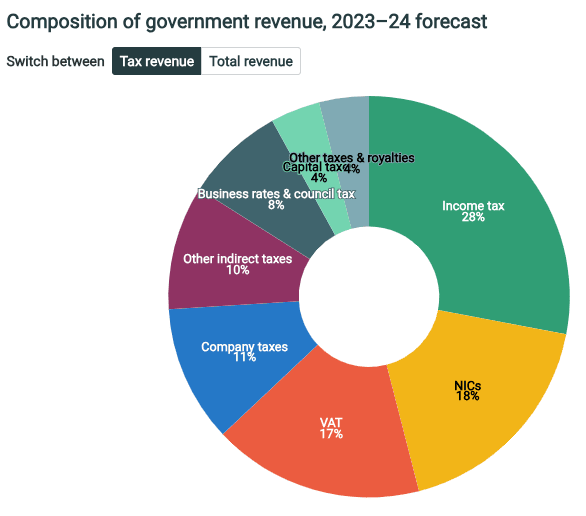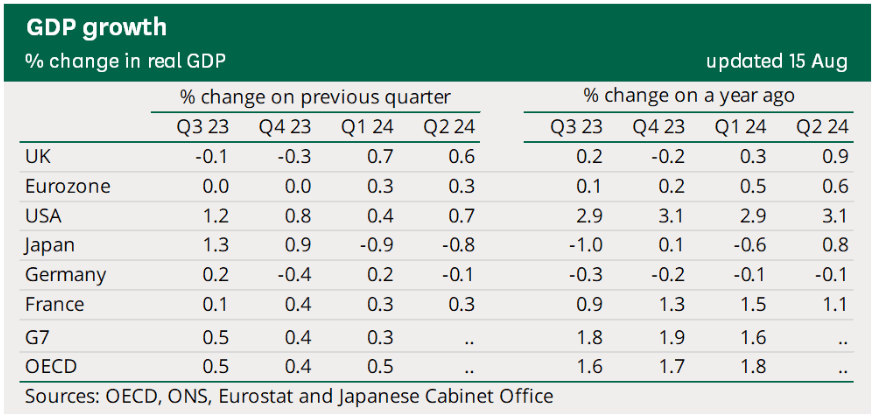Shower of Gloom to Sour Pound Sterling's Post-election Honeymoon
- Written by: Gary Howes

Above: London, United Kingdom. Prime Minister Keir Starmer gives his Inheritance speech in the garden of 10 Downing Street. Picture by Simon Dawson / No 10 Downing Street.
Prime Minister Keir Starmer risks stalling UK growth and the British Pound's impressive run by killing sentiment and enacting taxes that specifically target the growth sectors of the economy.
This is the assessment of numerous prominent economists and foreign exchange market strategists, reacting to the strongest indications yet that fresh tax hikes are on the way.
Prime Minister Keir Starmer said on Monday the government's first budget, due October, "is going to be painful" and "those with the broadest shoulders should bear the heavier burden."
He talked of a £20BN budget "black hole" and he had no choice but to make "big asks" of ordinary people who would need to "accept short-term pain for long-term good."
Press reports suggest fuel duty rises and wealth taxes are being sounded out by the government, while a Capital Gains Tax (CGT) increase is almost certain.
"The number one action to discourage entrepreneurs would be to significantly increase capital gains tax/CGT significantly," says Luke Johnson, co-founder of Risk Capital Partners.
Compare Currency Exchange Rates
Find out how much you could save on your international transfer
Estimated saving compared to high street banks:
£2,500.00
Free • No obligation • Takes 2 minutes
"This may sour GBP's post-election honeymoon," says Jane Foley, Senior FX Strategist at Rabobank. "The Labour party has ruled out raising taxes for workers, which suggests that capital gains may be in it sights."
Economists say there are two major concerns concerning the direction of travel for the economy and the Pound: 1) Starmer risks killing sentiment with his bleak assessment of the current situation and the outlook, and 2) tax rises will target growth-promoting individuals and companies.
"The economic outlook depends upon the fundamentals, policy choices & confidence. Lose confidence and it deters people from spending or firms from investing. Realism is needed but get the balance right. Don't talk yourself into a downturn," says Gerard Lyons, Chief Economic Strategist at Netwealth.
Above: Labour intends to target a small portion of the tax base, raising the risk that new taxes don't increase overall revenue. Source: IFS.
Labour's Chancellor Rachel Reeves inherited the fastest growing G7 economy when her party took power, while the 'good vibes' surrounding a change in government that would bring fresh ideas is another reason why the Pound is 2024's best-performing currency.
"The pound is again soaking up positive post-UK election sentiment. Chancellor Reeves has been appealing to UK investors by recognising their desire for political stability, their calls for government to partner with business and the problem of low productivity in the UK," says Foley.
Foreign exchange analysts say the election victory gave the Pound an extra boost, with many seeing an end to political uncertainty. Labour's pro-EU leaning was also cited as a potential boon for the UK economic outlook and was why some analysts saw the Pound to Euro exchange rate potentially hitting 1.25 in the coming months.
🎯 GBP/EUR year-ahead forecast: Consensus targets from our survey of over 30 investment bank projections. 📩 Request your copy.
But, analysts say the sentiment boost to Sterling from the change in guard could prove short-lived based on the current direction of travel.
"The 12m outlook remains pressured via the presumption of a fiscal tightening (tax hikes) in the 30 October budget," says Jeremy Stretch, a strategist at CIBC Capital Markets, regarding the outlook for GBP/USD.
"Keir Starmer said that the Autumn Budget needs to fill the £22bn so-called 'Black Hole'. But this is extreme short-termism. Economic policy should be forward-looking, based on future economic conditions in 2025/26 and beyond, not what has happened in the past," says Andrew Sentance, an economist who previously served on the Bank of England's MPC.
Above: Labour inherited the fastest-growing economy in the G7. Source: House of Commons Library.
Labour's intended tax hikes are bound to hit "working people" and hurt investment, says Tom Clougherty, Executive Director at the Institute of Economic Affairs.
"The government is softening voters up for a tax-raising budget in October," he says, "there is obviously a tension between raising revenue and prioritising wealth creation, and that will be especially pronounced when increases to the main, broad-based taxes – income tax, national insurance, and VAT – have been ruled out."
Clougherty explains the remaining possibilities would include higher taxes on business, on savings, and on investment. These "are likely to have an outsized impact on growth, and as a consequence may not generate as much revenue as the government expects."
The expectation of a rise in CGT is said to be already negatively impacting the financial system, with wealth managers reporting an upswing in activity as investors position themselves ahead of October Budget. The FT reports, fears of an increase are already driving a "frenzy" of activity by business owners, property investors and shareholders, according to wealth managers and tax experts.
The risk is that the prospect of higher taxes prompts near-term selling, while investors will be inclined to sit on their assets once the new rates are introduced, killing market turnover. For the Pound, a steady flow of foreign investor capital into the UK is meanwhile considered a key source of strength.
"It is also important to remember that the incidence of a tax doesn't always fall on the person who pays it. Workers usually lose out when corporation tax is increased, for example. Significant tax increases that don't affect 'working people' are a fantasy," says Clougherty.






